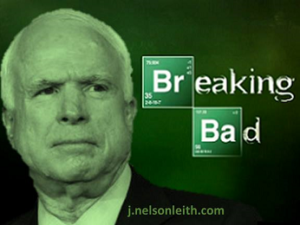 The season 6 opener for Game of Thrones reminded us all how critical information is to a story, what’s included and what’s excluded, where a narrative starts and stops, how reliable the information is…
The season 6 opener for Game of Thrones reminded us all how critical information is to a story, what’s included and what’s excluded, where a narrative starts and stops, how reliable the information is…
We’re told Jon Snow and Stannis Baratheon are dead, but do the characters who tell us really know? Theon attempts to deceive Ramsay Bolton’s men about killing Sansa but they don’t believe him. Cersei hears of a ship from Dorne and assumes she’ll soon be reunited with her daughter, because she doesn’t know the preceding story. Doran Martell learns too late that he is surrounded by assassins whom he was wrong to trust. Khal Moro’s assessment of Danaerys changes drastically when he learns her backstory. And viewers’ assessment of Melisandre changes drastically when they get a dramatic hint into how much of her backstory they don’t know.
Storytelling is all about revealing information. How much information, and whether that information is valid, can radically change the meaning of the story. The classic example from film would be The Sixth Sense, but Gone Girl really took us for a ride recently by completely changing the meaning of the story with its revelation: we’d been excluded from part of the narrative that skewed our sense of victim and villain.
And story-telling isn’t just about fiction. Humans interpret every event in their lives through narrative instinct. The same attention to information that we easily recognize in art also drives science and politics and the rule of law.
 Yesterday, I made a Breaking Bad joke meme about one of John McCain’s fundraisers getting busted for running a meth lab. After all, it’s in the southwest and McCain has a vague resemblance to Walter White. Immediately after sharing it, I had a pang of guilt because McCain himself was not involved (as far as I knew) in the crime. I didn’t intend to claim he was involved, or even that his fundraiser was guilty. It was just a comedic set of associations too good to pass up.
Yesterday, I made a Breaking Bad joke meme about one of John McCain’s fundraisers getting busted for running a meth lab. After all, it’s in the southwest and McCain has a vague resemblance to Walter White. Immediately after sharing it, I had a pang of guilt because McCain himself was not involved (as far as I knew) in the crime. I didn’t intend to claim he was involved, or even that his fundraiser was guilty. It was just a comedic set of associations too good to pass up.
But, then the former presidential candidate did something that made me feel not so bad about the joke. He cut ties to the accused. Before trial. You know, when she hasn’t been proven guilty of anything? He has no respect for due process. So, fuck him. A joke is one thing. Treating someone like you presume their guilt on a matter that hasn’t been proved indicates a profound disrespect for facts, justice, and the basic building blocks of civil society.
This happens a lot when prominent people get accused of bad behavior. Sponsors pull endorsements, sports teams release players, shows get cancelled. All before anything resembling due process, before anything whatsoever has been proven. Never mind presumption of innocence. Never mind a trial, that ancient cornerstone of justice that requires us to at least pretend to care about whether claims are true. When this happens, I often quietly stop associating with the business involved, even when I think the accused is probably guilty.
If you want to publicly repeat that you “consider these allegations troubling and will take immediate action upon the proper conclusion of due process,” that’s fine. But dumping the accused outright is like selling off all of your shares in the rule of law. Once enough people dump their shares, the whole system collapses. It’s a threat to civilization and no less contemptible for being lost in the collective. When Ser Alliser and his co-conspirators each took a stab at Jon Snow, perhaps each might console himself that it wasn’t his blade that actually killed the man. But, we all know that sort of thinking is cowardly bullshit. Napoleon was wrong when he said that collective crimes incriminate no one. They incriminate everyone involved.
And, claiming that association with an accused person “hurts the brand” is no excuse. Association with dangerous prejudice—which is exactly what presuming the truth of allegations is—should hurt the brand more. By not letting the story of justice play out, presumptions of guilt sabotage our sense of reality, as if someone just stopped watching Gone Girl halfway through.
Clipped narratives, suppressed information, and ignorant presumptions are running rampant not only in Game of Thrones, but in our society. We should take a few hints from the art of storytelling and regain our respect for how information is revealed.
